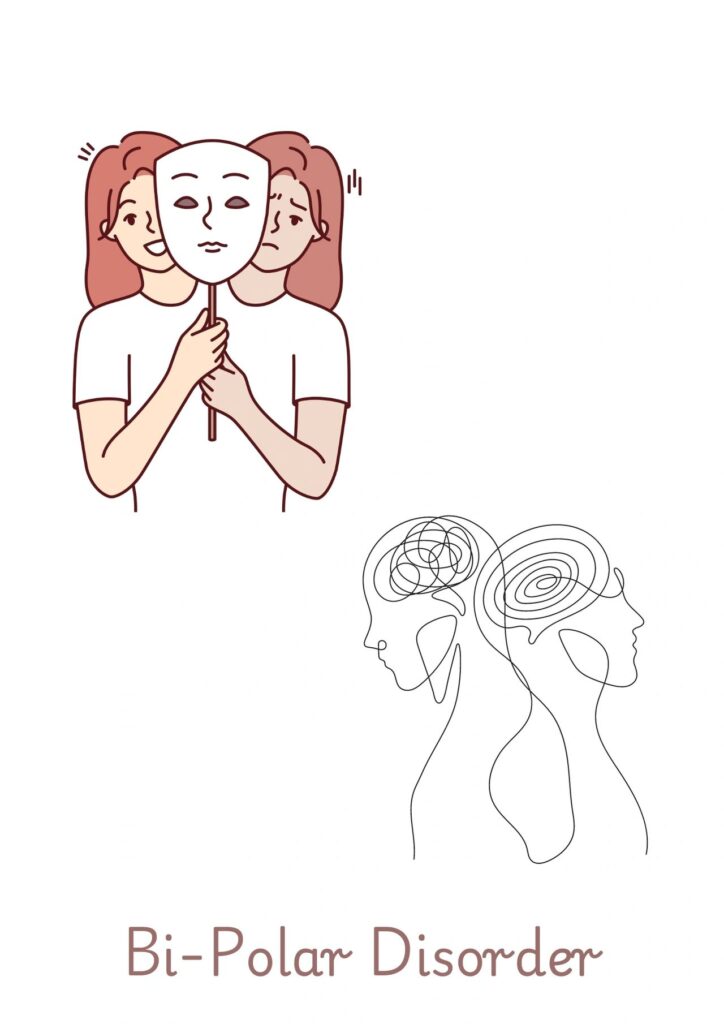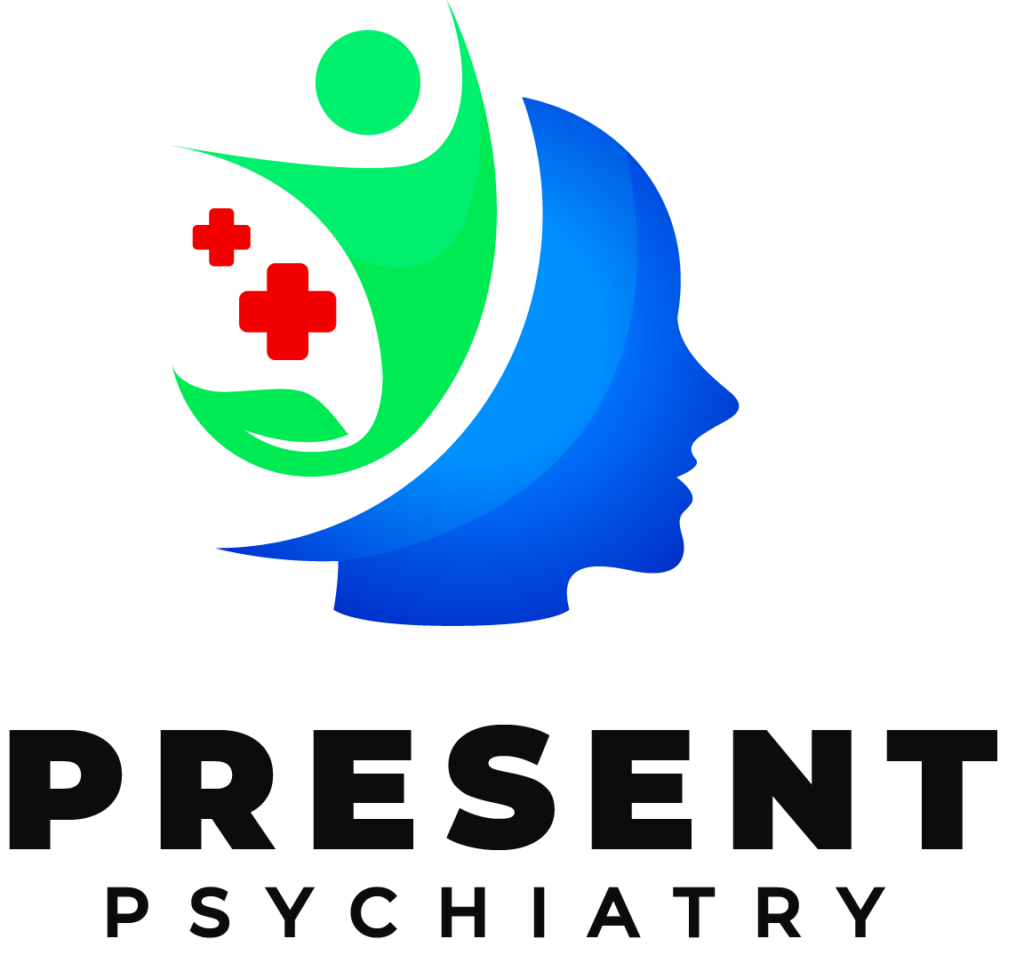Bipolar disorder, often referred to as manic-depressive illness, is a complex and chronic mental health condition characterized by extreme mood swings. These swings can range from manic highs, where a person may feel euphoric and overly energetic, to depressive lows, where they may experience intense sadness and hopelessness. Affecting millions worldwide, bipolar disorder can significantly impact daily life, relationships, and overall well-being. This blog will explore the causes, effects, symptoms, and treatment options for bipolar disorder, providing a clearer understanding of this challenging condition.
An estimated 40 million people live with bipolar disorder worldwide. (WHO, 2024).

What is Bipolar Disorder?
Bipolar disorder is a mental health condition that causes unusual shifts in mood, energy, activity levels, and the ability to carry out daily tasks. The mood swings include emotional highs (mania or hypomania) and lows (depression). These mood episodes can last for days, weeks, or even months, severely affecting a person’s ability to function.
Causes of Bipolar Disorder
The exact cause of bipolar disorder is not known, but several factors may contribute to its development:
- Genetic Factors: Bipolar disorder tends to run in families, suggesting a genetic link. Individuals with a family history of bipolar disorder are more likely to develop the condition.
- Biological Differences: Research has shown that people with bipolar disorder may have physical changes in their brains. The significance of these changes is still unclear but may eventually help pinpoint causes.
- Environmental Factors: Stress, traumatic events, and significant life changes can trigger bipolar disorder or worsen its symptoms. Substance abuse can also play a role in the onset of bipolar episodes.
Symptoms of Bipolar Disorder
The symptoms of bipolar disorder vary depending on whether the individual is experiencing a manic or depressive episode:
- Manic Symptoms:
- Elevated mood, euphoria, or irritability
- Increased energy and activity levels
- Reduced need for sleep
- Grandiosity or inflated self-esteem
- Racing thoughts and rapid speech
- Impulsivity and poor judgment (e.g., spending sprees, risky behaviors)
- Depressive Symptoms:
- Persistent sadness or hopelessness
- Loss of interest in activities once enjoyed
- Fatigue or lack of energy
- Changes in appetite or weight
- Difficulty concentrating or making decisions
- Suicidal thoughts or behaviors
Effects of Bipolar Disorder
Bipolar disorder can have far-reaching effects on various aspects of life, including:
- Personal Relationships: Mood swings can strain relationships with family, friends, and colleagues. The erratic behavior during manic episodes and withdrawal during depressive episodes can lead to misunderstandings and conflicts.
- Employment and Education: Bipolar disorder can disrupt work or academic performance, leading to job loss or difficulty in completing educational goals. Frequent mood swings can make it challenging to maintain focus, meet deadlines, or interact with others.
- Physical Health: The disorder can also impact physical health. For instance, the lack of sleep during manic episodes or changes in appetite during depressive episodes can lead to further health complications.
Treatment Options for Bipolar Disorder
While there is no cure for bipolar disorder, it is highly treatable with the right combination of therapies:
- Medications:
- Mood Stabilizers: Lithium is commonly prescribed to manage mood swings.
- Antipsychotics: Medications like quetiapine can help control manic or depressive symptoms.
- Antidepressants: These are often prescribed during depressive episodes but must be used cautiously to avoid triggering mania.
- Therapy:
- Cognitive Behavioral Therapy (CBT): CBT helps patients identify negative thought patterns and behaviors and develop coping strategies.
- Psychoeducation: Learning about bipolar disorder can empower patients and their families to manage the condition effectively.
- Lifestyle Changes:
- Regular Exercise: Physical activity can help stabilize mood.
- Healthy Diet: A balanced diet supports overall well-being.
- Sleep Hygiene: Maintaining a regular sleep schedule can prevent mood episodes.
Bipolar disorder is a serious mental health condition that requires ongoing management. Understanding the causes, symptoms, and treatment options is crucial for those affected by the disorder and their loved ones. With proper treatment and support, individuals with bipolar disorder can lead fulfilling lives. Remember, seeking help is a sign of strength, not weakness.
Example Case: Consider Sarah, a 30-year-old woman who has been living with bipolar disorder for over a decade. Sarah’s life was once a rollercoaster of extreme highs and devastating lows, affecting her career and personal relationships. However, after being diagnosed and receiving the appropriate treatment, Sarah has learned to manage her condition. Through a combination of medication, therapy, and lifestyle changes, she now enjoys stability and is able to pursue her passions without the constant disruption of mood swings.
“In the midst of darkness, even a small flicker of hope can light the way. Managing bipolar disorder is not about eliminating the darkness but finding ways to navigate through it.”
Rizwan Ali
References
World Health Organization. Bipolar disorder, 2024.https://www.who.int/news-room/fact-sheets/detail/bipolardisorder#:~:text=An%20estimated%2040%20million%20people,and%20experience%20discrimination%20and%20stigma.
WE STRIVE HARD AND PROMISE TO DELIVER
- 5600 NW Central Dr Suite 280, Houston, TX 77092, United States
- +1 832-552-1578
- inquire@presentpsychiatry.com



